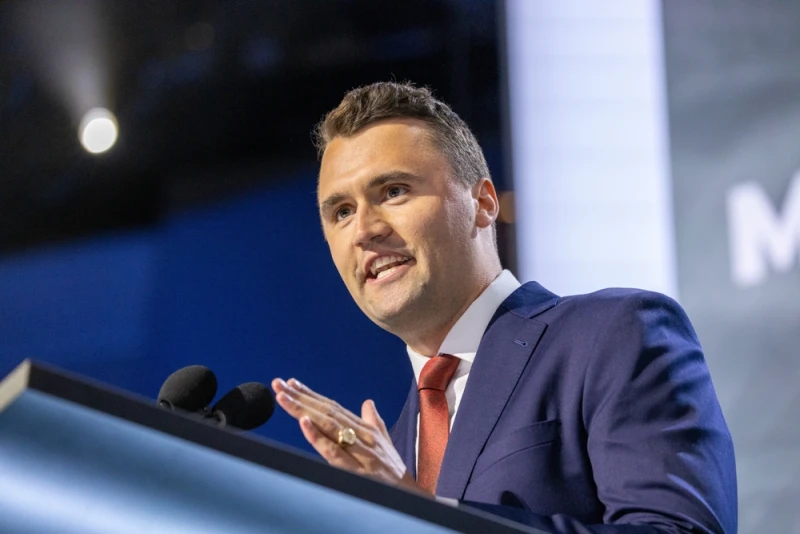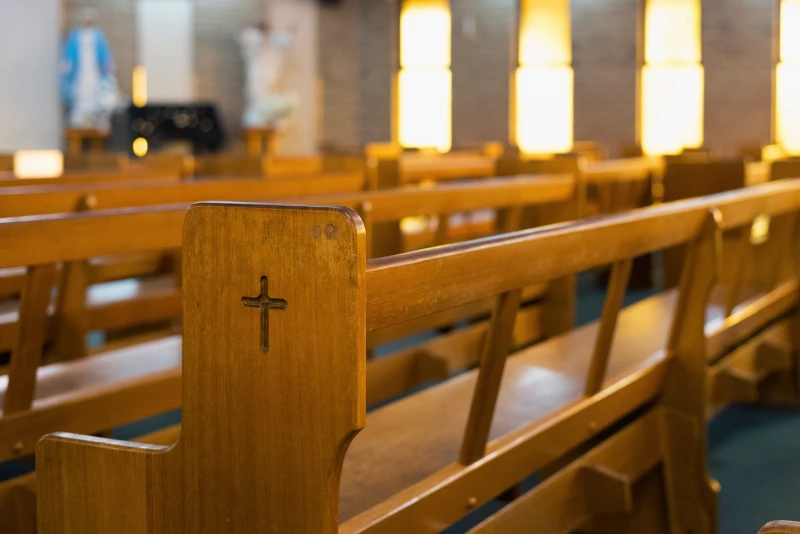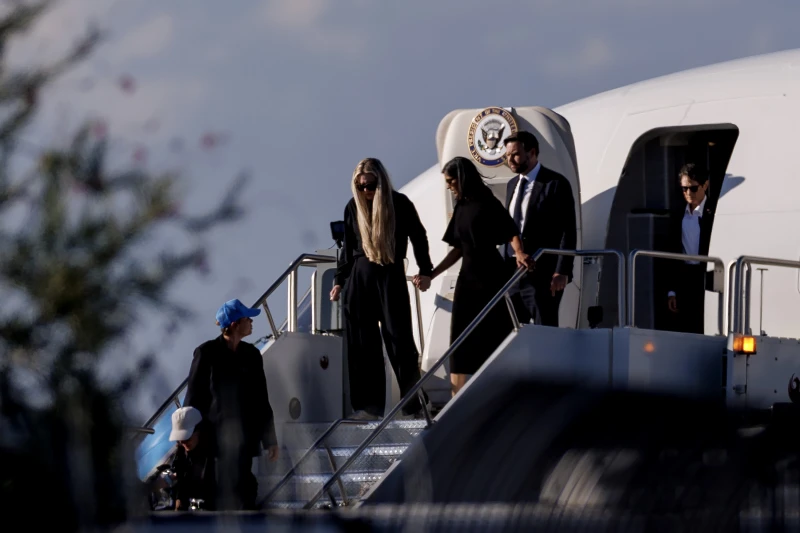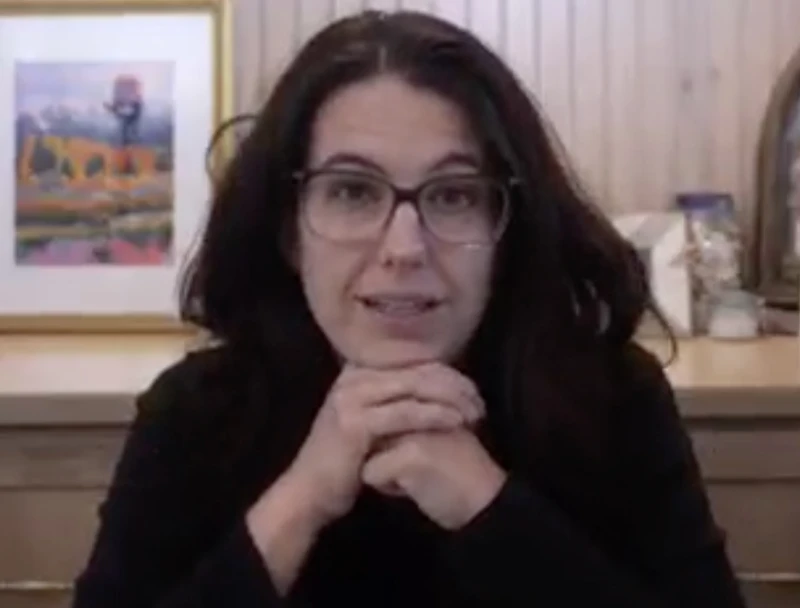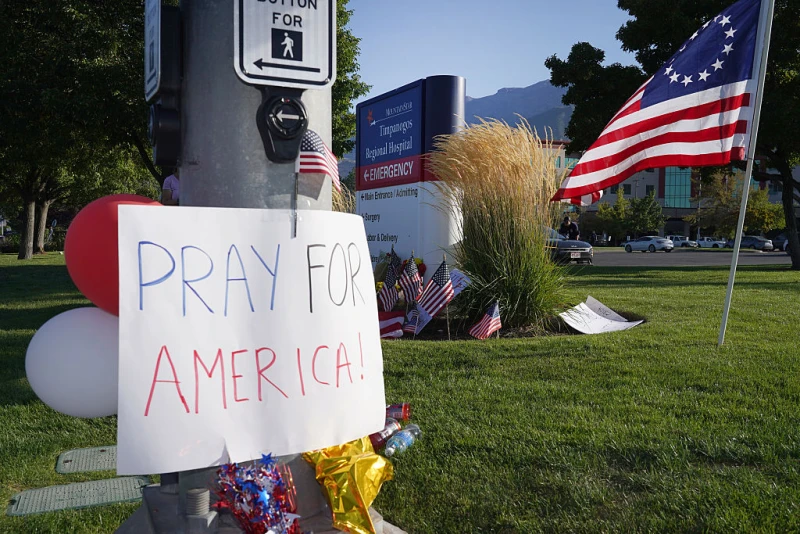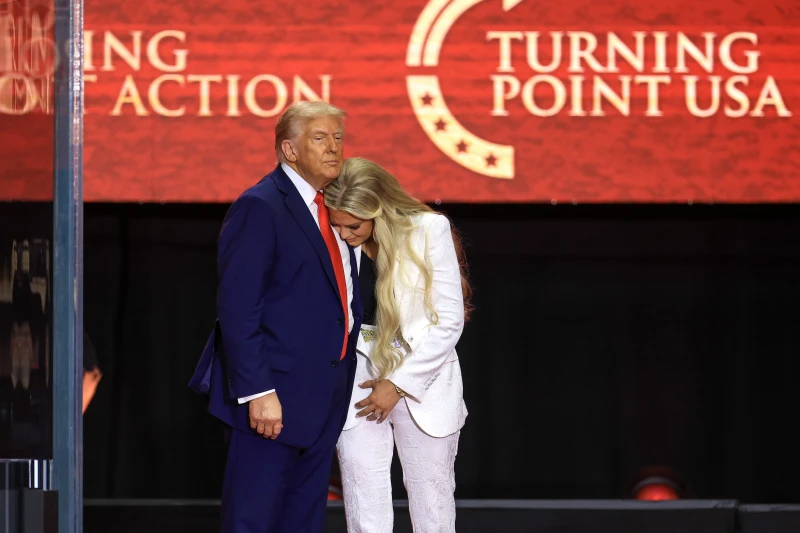

Erika Kirk embraces U.S. President Donald Trump at the conclusion of the memorial service held for Charlie Kirk in Glendale, Arizona, on Sept. 21, 2025. / Credit: Joe Raedle/Getty Images
Washington, D.C. Newsroom, Sep 22, 2025 / 09:35 am (CNA).
President Donald Trump, Vice President JD Vance, Erika Kirk, and more than a dozen others gave speeches to honor the late Charlie Kirk at Sunday’s memorial service, highlighting his efforts to promote conservative values to young people and promote the Gospel on campus.
Some 90,000 people gathered for the memorial service at State Farm Stadium and an adjacent venue in Glendale, Arizona, on Sept. 21. Bishop Robert Barron, who had scheduled Kirk to come on his show, was among those in attendance.
Kirk, an evangelical Christian, was assassinated on Sept. 10 during an event at Utah Valley University while debating students on campus. At the time, Kirk was conversing with a young ideological opponent about transgenderism and gun violence. Prior to the question, he had been discussing his Christian faith with another questioner, something he often included in his conservative campus activism.
“What was even more important to Charlie than politics and service was the choice he made in the fifth grade — which he called the most important decision of his life — to become a Christian and a follower of his Savior Jesus Christ,” Trump, a self-identified nondenominational Christian, said during his speech.
Trump praised Kirk’s legacy of evangelizing the message of Christ and his activism to promote conservative values on campus, saying Kirk was “inspired by faith and his love of freedom” to establish the conservative campus organization Turning Point USA when he was just 18 years old.
“Charlie Kirk started with an idea only to change minds on college campuses and instead he ended up with a far greater achievement: changing history,” the president said. “… Today Charlie Kirk rests in heaven for all eternity. He has gone from speaking on campuses in Wisconsin to kneeling at the throne of God.”
Vance, a Catholic who often discussed theology with Kirk, spoke about Kirk’s devotion to honest debate in his campus activism, saying his “unshakable belief in the Gospel led him to see differences in opinion, not as battlefields to conquer but as waystations in the pursuit of truth.”
“He knew it was right to love others, your neighbor, your interlocutor, your enemy,” Vance said.
“But he also understood his duty to say what is right and what is wrong, to distinguish what is false from what is true.”

The vice president noted that even after death, Kirk’s message to defend life, to get married and start a family, and to follow Christ, continue to reach people. Vance said his own public appearances have been particularly influenced by Kirk after the assassination.
“I was telling somebody backstage that I always felt a little uncomfortable talking about my faith in public, as much as I love the Lord, as much as it was an important part of my life,” Vance told the crowd. “I’ve talked more about Jesus Christ in the past two weeks than I have my entire time in public life. And that is the undeniable legacy of the great Charlie Kirk. You know, he loved God and because he wanted to understand God’s creation and the men and women made in his image.”
Kirk’s widow forgives assassin
Kirk’s wife, Erika, said her husband’s devotion to Christ has influenced many Americans in the aftermath of the assassination.
“This past week, we saw people open a Bible for the first time in a decade, we saw people pray for the first time since they were children, we saw people go to a church service for the first time in their entire lives,” Erika Kirk said.
“Pray again, read the Bible again, go to Church next Sunday and the Sunday after that, and break free from the temptations and shackles of this world,” she urged the audience.
“Being a follower of Christ is not easy,” she continued. “It’s not supposed to be easy. Jesus said ‘if anyone would come after me, let him deny himself, take up his cross and follow me.’ He said he would be persecuted, he said we would be persecuted, and Charlie knew that and happily carried his cross all the way to the end.”
Erika Kirk said he had gone onto Utah Valley University’s campus to show people, especially young men, “a better path and a better life that was right there for the taking.” She added: “He wanted to save young men, just like the one who took his life.”
Appealing to the Gospel message, Erika Kirk also extended forgiveness to the man who shot her husband.
“On the cross, our Savior said, ‘Father, forgive them, for they know not what they do,’” she said. “That man, that young man, I forgive him. I forgive him because it was what Christ did and is what Charlie would do. The answer to hate is not hate. The answer, we know from the Gospel, is love and always love. Love for our enemies and love for those who persecute us.”
‘I want to be remembered for courage for my faith’
Other speakers also highlighted Kirk’s emphasis on Christ in his campus activism.
Donald Trump Jr. reminded the crowd that Kirk said just months before his death that if he were to die, “I want to be remembered for my courage for my faith.”
“Those were not empty words,” Trump Jr. said. “Last week, Charlie joined a long line of courageous men and women who were martyred for what they believe.”
The country’s Health and Human Services secretary, Robert F. Kennedy Jr., a Catholic, said Kirk’s devotion to God modeled St. Francis of Assisi’s instruction to try to live one’s life in imitation of Christ.
“Charlie understood the great paradox: That it’s only by surrender to God that God’s power can flow into our lives and make us effective human beings,” Kennedy said. “Christ died at 33 years old, but he changed the trajectory of history. Charlie died at 31 years old, but because he had surrendered, he also now has changed the trajectory of history.”
U.S. Secretary of Defense Pete Hegseth similarly noted that Kirk “was a true believer,” one who understood that “Only Christ is King, our Lord and Savior.”
“Our sins are washed away by the blood of Jesus,” Hegseth said. “Fear God and fear no man. That was Charlie Kirk.”
Political commentator Tucker Carlson said Kirk was essentially “a Christian evangelist” who “was bringing the Gospel to the country.”
“He also knew that politics wasn’t the final answer,” Carlson said. “It can’t answer the deepest questions, actually. That the only real solution is Jesus.”
Read More